According to pharmacy claims submitted, some of the Alliance members are receiving medications that should be avoided in elderly patients per American Geriatrics Society (AGS).¹
These drugs often result in adverse drug events that contribute to hospitalization, prolonging duration of illness, and increase the risk of falls and fractures. We recommend that providers regularly reassess the need for the listed medications for patients and discuss strategies for discontinuation.
Please review your patients’ medical profiles and if appropriate, consider switching to a safer medication or deprescribing to improve the safety of their drug regimen.
| Therapeutic Class | Drug Name | Adverse Side Effect/Concern | Potential Alternative | |
| Anticholinergics, First-generation antihistamines | Brompheniramine | Anti-cholinergic effects and sedation, weakness, blood pressure changes, dry mouth, urinary retention | Fexofenadine, loratadine, fluticasone, saline nasal rinse | |
| Carbinoxamine | ||||
| Chlorpheniramine | ||||
| Clemastine | ||||
| Cyproheptadine | ||||
| Dexbrompheniramine | ||||
| Dexchlorpheniramine | ||||
| Dimenhydrinate | ||||
| Diphenhydramine (oral) | ||||
| Doxylamine | ||||
| Hydroxyzine | ||||
| Meclizine | ||||
| Promethazine | ||||
| Triprolidine | ||||
| Pain medications, skeletal muscle relaxants | Carisoprodol | Anti-cholinergic effects, sedation and weakness. Poorly tolerated |
Acetaminophen, baclofen, tizanidine | |
| Chlorzoxazone | ||||
| Cyclobenzaprine | ||||
| Metaxalone | ||||
| Methocarbamol | ||||
| Orphenadrine |
¹ 2019 American Geriatrics Society Beers Criteria Update Expert Panel. 2019. “American Geriatrics Society 2019 Updated Beers Criteria for Potentially Inappropriate Medication Use in Older Adults”. Journal of the American Geriatrics Society 67(4), 674–94.


